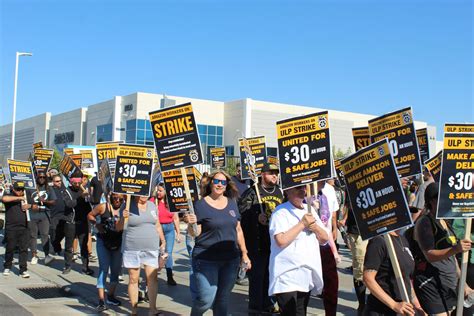—
Warehouse Turmoil
In a recent saga at Woolworths, the grocery giant found itself embroiled in controversy as two workers faced dismissal, while numerous others were under scrutiny for their actions during a 17-day strike. The industrial unrest unfolded across four distribution centers in New South Wales and Victoria, involving about 1,500 warehouse staff.
Striking for Change
The strike, sparked by concerns over pay disparities and workplace conditions, significantly impacted Woolworths, resulting in financial losses amounting to over $100 million. Despite the disruptive nature of the industrial action, the company emphasized that no punitive measures would be taken against those lawfully participating in protected strikes.
Internal Investigations Unveiled
Amidst the aftermath of the strike, Woolworths initiated internal investigations into alleged misconduct by its employees. Letters sent to workers highlighted instances of “unlawful picketing,” particularly focusing on activities outside warehouses not involved in the industrial action. The contentious date of November 26th featured prominently in these investigations.
Union Involvement
The United Workers Union stepped into the fray to support its members facing inquiries from Woolworths. While acknowledging various issues raised by the company post-strike, the union underscored its commitment to advocating for fair treatment and due process for workers entangled in the investigations.
Consequences Unfold
Two employees bore the brunt of disciplinary actions as they were terminated for their alleged roles during the strike-related protests outside a non-participating site within Woolworths’ network. The affected workers expressed dismay at what they perceived as retaliatory measures by the supermarket chain.
Looming Legal Battles
Legal expert John Howe weighed in on the situation, cautioning that picketing sites unrelated to protected industrial action could expose workers to vulnerability even if owned by the same employer. This insight shed light on potential legal ramifications arising from such disputes within companies like Woolworths.
Negotiations and Resolutions
Post-strike deliberations led to wage increases ranging between 4% to 4.5% in the first year and subsequent increments between 3.15% and 4.50%. Additionally, new provisions addressing performance management matters were secured through agreements between stakeholders after tense negotiations following the strike.
As tensions simmered post-strike at Woolworths’ distribution centers, questions lingered about future labor relations within one of Australia’s retail giants.

